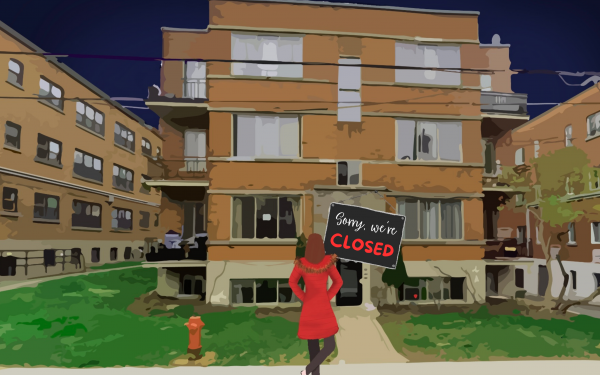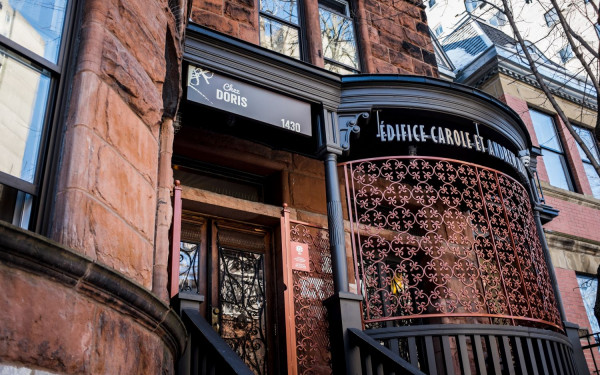Montreal Students Distribute Menstrual Hygiene Products to Homeless Women
Initiative Means Not Having to Choose Between Dinner and Dignity
Homeless women, like most women, have periods. What they might not have are the menstrual hygiene products many take for granted.
Monthly Dignity is a not-for-profit organization created in fall 2017 by two McGill students, Julia Coste and Chloé Pronovost-Morgan. It seeks to alleviate the difficult experience of having a period as a homeless woman by distributing menstrual hygiene products to women’s homeless shelters and raising awareness.
The founders acknowledged that not all people who menstruate identify as women, and Monthly Dignity is working towards more inclusivity.
“We’re aware that not all people who menstruate necessarily identify as women or have the desire to go to a women’s shelter,” said Pronovost-Morgan. “One of our long-term goals is to have menstrual hygiene products available in public locations around the city in order to reach the largest population possible.”
The idea for Monthly Dignity came to Coste when she got her period while on vacation. At first, she felt the need to complain about the discomfort she was feeling, but she stopped herself because she felt ashamed of it and did not feel it was appropriate to talk about it in public.
“I realized that I should be able to talk openly about period-related issues because it’s a natural phenomenon which directly affects half the world’s population and indirectly concerns everyone,” said Coste. “It is a vital part of the cycle of life and reproduction and should […] not be shamed nor made taboo.”
Coste then became aware of the privilege she had. She had easy access to menstrual hygiene products, but this is not the case for many women in the world, including homeless women who don’t have the means to purchase costly pads and tampons.
When she realized there was no official policy in Montreal that facilitates access to menstrual hygiene products, she decided to do something about it.
“A quote we go by is ‘You shouldn’t have to choose between your dinner and your dignity’,” said project manager Marysia Kaminska.
Monthly Dignity currently has a partnership with Abri d’Espoir, a women’s shelter affiliated with the Salvation Army, but they have hopes of collaborating with other shelters once they have more resources.
Their last shipment was in December and contained around 7,000 menstrual hygiene products. Kaminska said that the shelter was not providing menstrual hygiene products to homeless women before.
“Homeless women have to resort to makeshift alternatives that aren’t always hygienic during their periods and it’s hell for them,” said Kaminska. “They often keep reusing dirty cloths. They might have to sit for long periods of time and not move until they can get toilet paper.”
For many years now, human rights organizations have documented how periods and poor policy for managing menstruation have a negative impact on women’s human rights. Women’s ability to manage their menstruation hygienically, and with normalcy and dignity, enables women to enjoy certain human rights.
“We’re hoping that people will come to realize that since [menstruation] affects 50 per cent of the world’s population, it should […] be regarded as a healthcare issue, period,” said Pronovost-Morgan.
Coste also highlighted that there has been very little progress in the domain of menstrual hygiene products which she thinks is unacceptable considering we live in such a technologically-advanced society.
Kaminska also acknowledged the taboo surrounding women’s periods. Monthly Dignity aims to destigmatize menstruation.
“Over the years, [menstruation] has […] been labelled a women’s problem,” said Kaminska. “There is this idea that it’s something women should take care of, it’s something women should keep on the downlow. It’s an issue that’s been swooped under the table and not been dealt with because of its […] grossness or foreignness”.
Monthly Dignity is funded for the most part through crowd funding but also through sponsors. It has received a grant from the Canadian government. It has also received Community Health and Social Medicine Incubator, meaning that Monthly Dignity’s team will receive mentorship on running an organization and managing finances.







_600_375_90_s_c1.jpg)